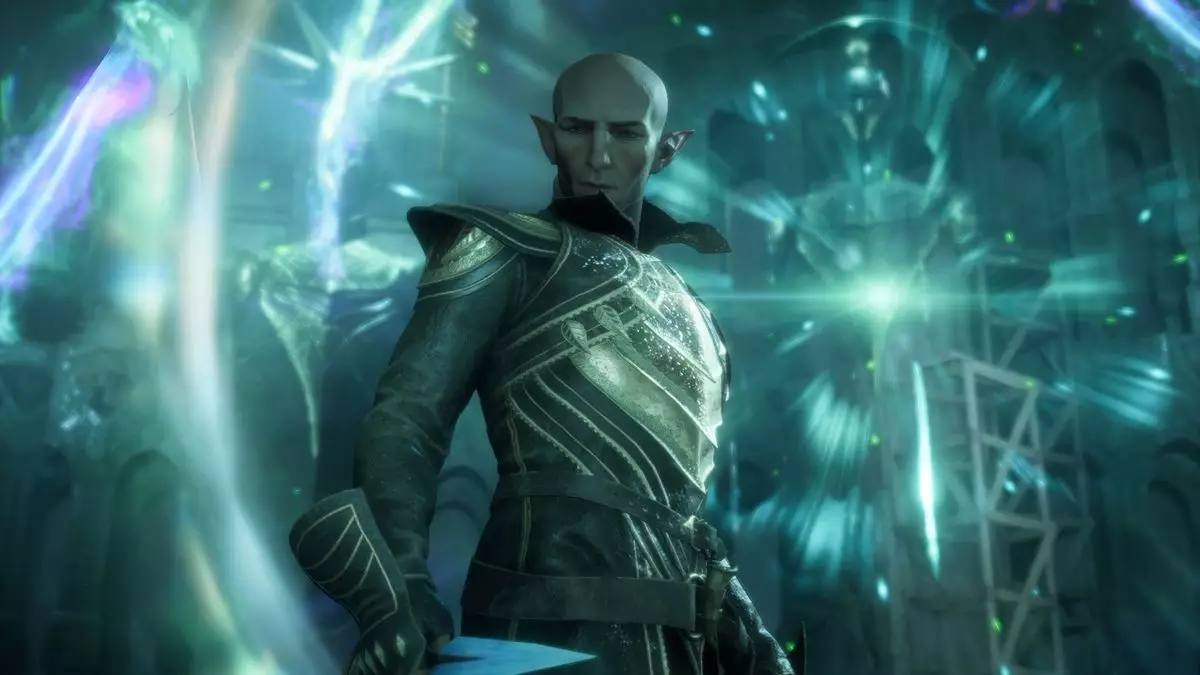As Halloween approaches, fans of the fantasy RPG genre are abuzz with excitement over Dragon Age: The Veilguard, the latest title from BioWare. The release is almost upon us, and early reviews are beginning to emerge, revealing a predominantly positive reception. Anticipation for The Veilguard is palpable, as it promises to further expand the beloved lore and gameplay mechanics established in its predecessors. Fans are not only celebrating the franchise’s return but are also engaging in broader discussions regarding its place within the gaming landscape, particularly in relation to BioWare’s other flagship series, Mass Effect.
Michael Gamble, the seasoned director behind Mass Effect 5, has taken to Twitter to engage with the community. His comments provide valuable perspectives on the unique qualities that define both Dragon Age and Mass Effect. He emphasized the intrinsic differences in how sci-fi and fantasy RPGs resonate with players, stating, “How you bring a Sci Fi RPG to life is different than other genres.” This statement invites discussion about the creative divergences necessary to cultivate immersion in disparate worlds. Gamble acknowledged ongoing inquiries about Mass Effect amidst the excitement for The Veilguard, highlighting the interconnectedness of BioWare’s creations while recognizing that each franchise has its own identity.
The divergence between Dragon Age and Mass Effect is significant, with each series drawing from different cultural and emotional wells. While Dragon Age plunges players into a medieval fantasy realm filled with sorcery and mythical beings, Mass Effect explores far-reaching galaxies and futuristic technologies. This distinction is not merely aesthetic; it shapes the gameplay experience and narrative structure players have come to expect. Gamble’s observations remind fans that despite the shared ethos of character-driven storytelling, the immersive strategies of each series vary greatly—a factor that will inevitably influence the development of Mass Effect 5.
GamesRadar+ provided an early glimpse into The Veilguard’s triumphs, awarding it a remarkable 4.5 out of 5 stars. The review praised its “captivating companions” and “tough but fair” combat mechanics, elements that have long been hallmarks of the Dragon Age series. However, it also pointed to shortcomings, including a criticism about the linear nature of hub areas and the absence of impactful decision points that could elevate player agency. This blend of praise and critique illustrates a nuanced reception that acknowledges the series’ legacy while pushing for innovation.
With Dragon Age: The Veilguard on the horizon, fans are poised at an exciting intersection of anticipation and speculation. The ongoing dialogue between fans regarding the health of the franchise, the direction of Mass Effect 5, and the collective legacy of BioWare suggests that the studio remains a focal point within the gaming community. As players immerse themselves in The Veilguard, one can only hope that the game’s successes inspire a renewed passion for role-playing experiences, all while maintaining the distinct voices that make both Dragon Age and Mass Effect memorable in their own right.

